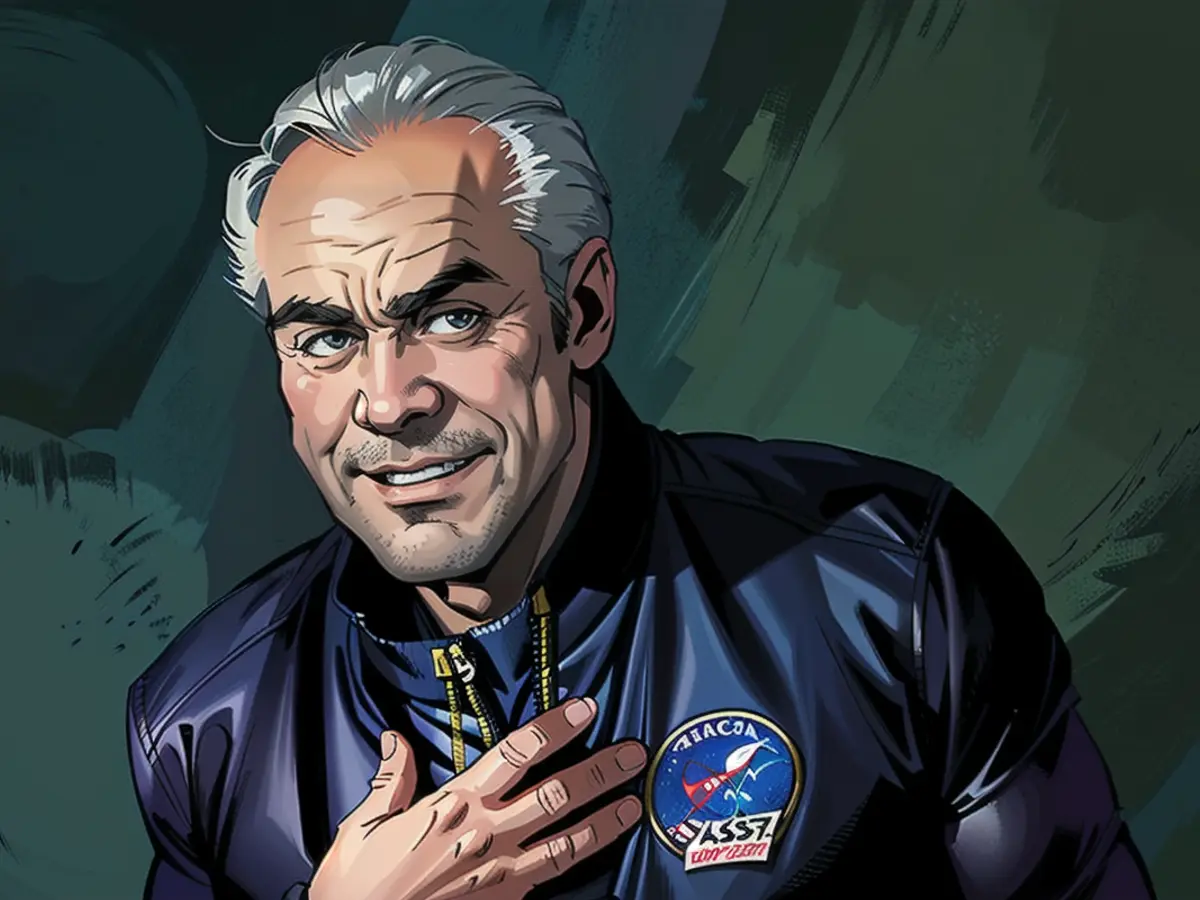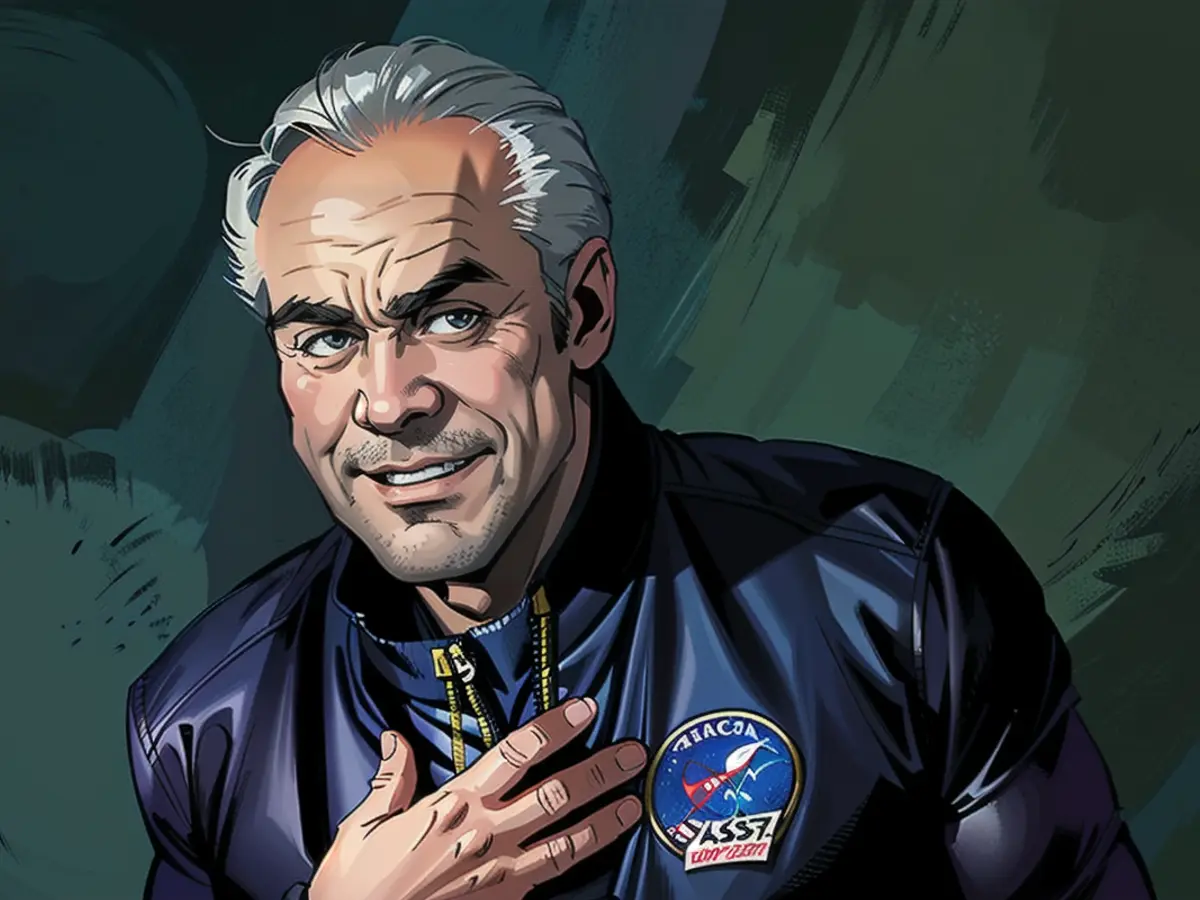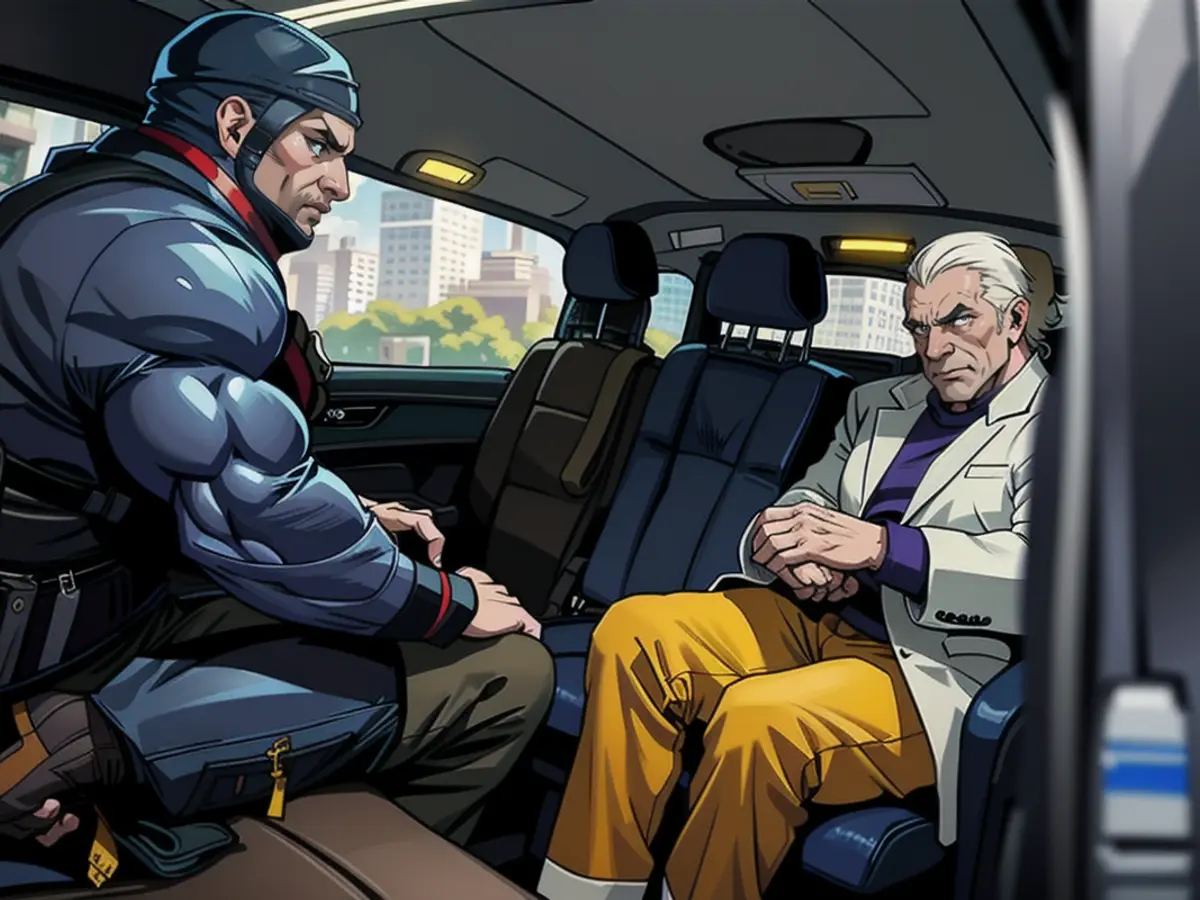'Departing to the uncharted.' Palestinians escaping Rafah share their terror and sadness
Residents in eastern Rafah fled their homes due to the distribution of leaflets, stating that the Israelis were striking indiscriminately without differentiating between children, adults, militants or non-militants. Mohammed Ghanem, one of these residents, had been building his house for 17 years but left it behind.
Ghanem and his wife were seen pushing strollers filled with their belongings as they headed towards Mawasi. They expressed fear and stated that they couldn't stay in the area anymore since the Israelis were killing women and children. Another woman from eastern Rafah said that she too had received orders to leave.
Earlier, the Israeli military requested that approximately 100,000 Palestinians living in parts of eastern Rafah evacuate immediately, urging them to move to Al-Mawasi, a coastal town that aid groups have deemed unsuitable for habitation. The Israeli government's decision to continue the ongoing operation in Rafah "to apply military pressure on Hamas" was met with criticism from world leaders, the United Nations, and humanitarian groups who called on Israel not to attack the city despite ceasefire and hostage negotiations failing.
The United Nations Human Rights Chief Volker Türk described this move as "inhumane," while the Norwegian Refugee Council labeled it "beyond alarming."
The Israeli Defense Forces claimed that they were conducting targeted strikes against Hamas terror targets in eastern Rafah. The city had been the focus of the conflict since it began on October 7, when Hamas militants killed more than 1,200 people in southern Israel and took over 200 others hostage.
Monday saw trucks full of people's belongings driving through the streets of eastern Rafah, which became increasingly crowded. Children were seen sitting among tanks of fuel and plastic bags filled with possessions. Families were witnessed leaving homes with mattresses strapped to their cars.
Faisal Barbakh, who left his home on a bicycle, expressed his anguish, saying that he wished one of the people who caused this situation were with him. He had to leave his whole life behind and was going to the "unknown".
Many of the residents of eastern Rafah have been displaced multiple times before as Israel's focus shifted from city to city.
"This is the fourth time I'm being displaced. From Nuseirat to Khan Younis, then to Rafah, and now another one. I don't know where I am heading," shared one resident with CNN.
The current conflict has killed over 34,600 people, according to the Gaza health ministry, and driven over 1 million Palestinians to seek refuge in Rafah. The medical organization Medicines San Frontieres described Rafah as absent of the "necessary conditions for survival," with an estimated 600,000 children living in deteriorating conditions. Malnutrition is on the rise, and medical facilities have been "rendered ineffective by the Israeli authorities' siege."
The UN Children's Fund (UNICEF) stated that "Rafah is now a city of children, who have nowhere safe to go in Gaza." It warned that an Israeli ground incursion "would pose catastrophic risks" for the already injured, sick, malnourished, and traumatized people in the city who have no safe place to go.
Two boys, Malek and Yousef, were seen escaping Rafah on bicycles, carrying their bags. "We are running away from the Israelis. They warned us and ordered us to evacuate the eastern area. I have my clothes and food in the bag. We are going to our grandparents' house," one boy said.
The Israeli military instructed people to go to Al-Mawasi, a narrow, coastal area designated as an "expanded humanitarian area." Upon arriving at Al-Mawasi, crowds of displaced people were seen in the streets packed with trucks and donkey carts surrounded by piles of garbage.
"I came here from Rafah and didn't find any place to stay. People even say we should leave [here]. I swear, I don't know where to go. They distributed leaflets, and people panicked and started running away," said Mohammad Abu Khamash.
The UN refugee agency, UNRWA, has warned that Al-Mawasi is not suitable for habitation.
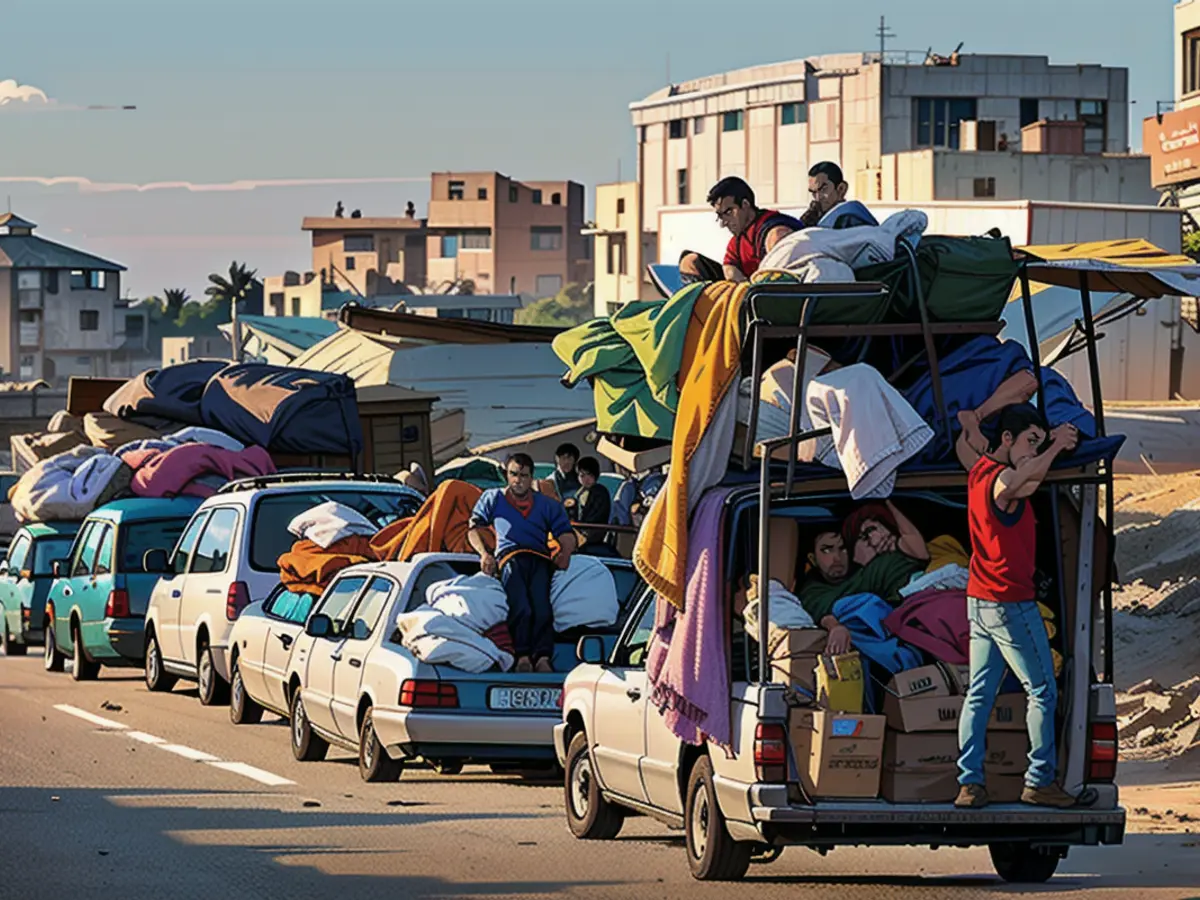
The area is not a suitable place for people to set up tents and survive on a day-to-day basis, as Scott Anderson, UNRWA's director for Gaza, shared with CNN on Monday.
According to Jan Egeland, the Secretary General of the Norwegian Refugee Council, the evacuation order is illegal and Al-Mawasi "is already overloaded and lacks essential services."
Egeland continued by saying that the area does not have the ability to house the large number of people seeking refuge in Rafah, providing no guarantees of safety, suitable accommodations, or a return for those forced to relocate when hostilities conclude.
Many of the individuals leaving on Monday shared their concerns about their safety and the ability to provide a decent life for their families.
Ahmad Safi, who fled Rafah with his family, noted that they had to deal with continuous airstrikes that put their lives and their children's lives at risk.
"We left Rafah in hopes of a small sense of dignity and safety with our families," Safi explained.
He also mentioned that finding water every day was a challenge.
"There is no life left. It's very complicated. I came to Khan Younis and felt so depressed. It was once a lively and joyful city, but now it's not even livable. We are an extended family of eight people. We left Rafah on a cart," Safi added, visibly shaken.
Safi also emphasized that there is no safety anywhere, as Israeli forces can enter anywhere at any time.
In addition to the evacuations, subsequent airstrikes in Rafah on Tuesday evening resulted in the deaths of multiple Palestinians and injuries to others, as per a statement published by the Palestinian Civil Defense.
The city of Rafah endured intense airstrikes from late Sunday night to early Monday morning, leaving at least 26 people dead, according to the civil defense.
Resident Abu Salah told CNN that he had left the city under heavy Israeli fire.
"There is no safety. Safety is being at home. Being continually displaced, like a cat with its children, constantly seeking water and food, is not safety," Salah said.
A woman named Maha shared that Palestinians are at the mercy of the Israeli military and that the ideal solution is to bring this conflict to an end and establish a Palestinian state.
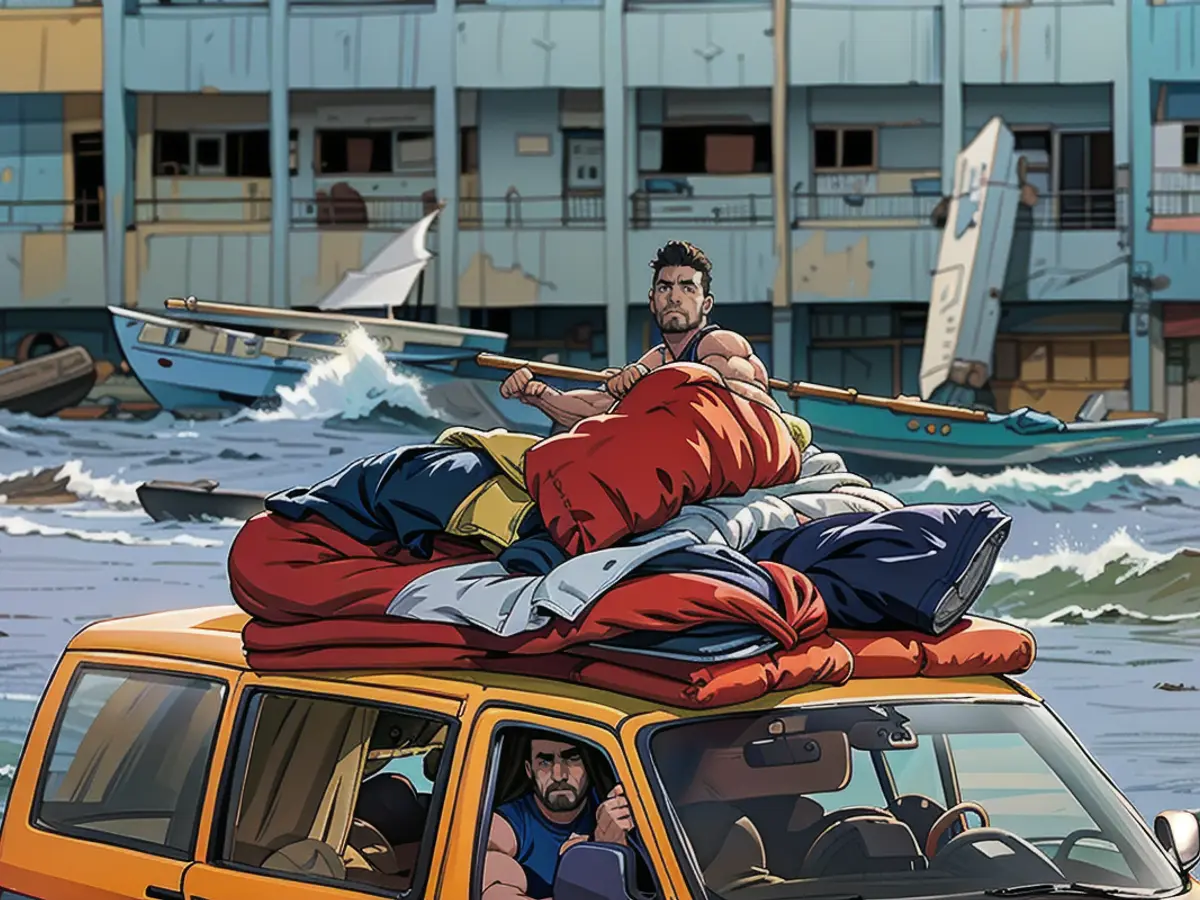
Read also:
- This will change in December
- Dikes withstand water masses so far - Scholz holds out the prospect of help
- Fireworks and parties ring in 2024 - turn of the year overshadowed by conflicts
- Attacks on ships in the Red Sea: shipping companies avoid important trade route
Source: edition.cnn.com

